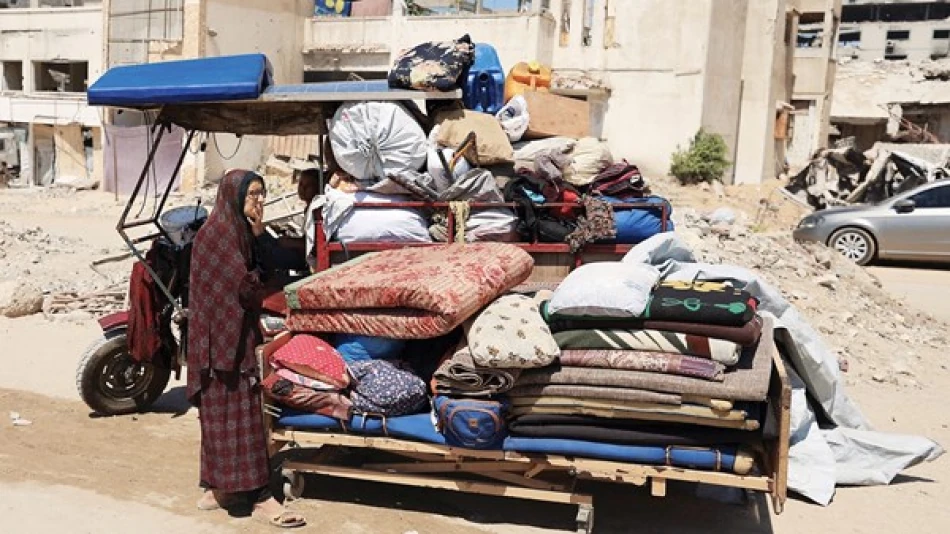
Islamic Arab League Vehemently Opposes Forced Displacement of Palestinians
Arab-Islamic Committee Condemns Israeli Displacement Policies as Regional Security Crisis Deepens
Foreign ministers from the Arab-Islamic Committee on Gaza have issued their strongest condemnation yet of Israeli policies they characterize as systematic displacement of Palestinians, marking a significant escalation in diplomatic rhetoric as the Gaza conflict enters a critical phase. The committee's statement reflects growing regional alarm over what Arab nations view as an existential threat to Palestinian territorial integrity and broader Middle Eastern stability.
Accusations of Ethnic Cleansing and Genocide
The ministers delivered an unusually sharp rebuke of Israeli military operations, explicitly linking current Gaza strategies to historical patterns of forced displacement. Their statement condemned what they described as Israel's use of "siege and starvation as tools of war" alongside repeated targeting of civilian infrastructure.
Most significantly, the committee called for accountability for violations that "may amount to ethnic cleansing and genocide" – language that represents a diplomatic escalation and aligns with ongoing International Court of Justice proceedings. This framing suggests Arab nations are preparing for potential international legal action beyond current ICC investigations.
West Bank Operations Draw Equal Condemnation
The ministers expanded their criticism beyond Gaza to include Israeli activities in the West Bank, condemning settlement expansion, settler violence, and home demolitions. This dual focus indicates Arab nations view the current crisis as part of a broader territorial strategy rather than an isolated Gaza operation.
International Law and Security Council Pressure
The committee's appeal to the UN Security Council reflects growing frustration with international inaction. By framing Israeli policies as violations of the UN Charter and international order, the ministers are essentially calling for enforcement mechanisms that have historically been blocked by US vetoes.
The timing of this statement coincides with renewed diplomatic efforts by several Arab nations to build international consensus around Palestinian statehood recognition, following similar moves by European countries like Spain, Ireland, and Norway earlier this year.
Two-State Solution as Strategic Imperative
The ministers reaffirmed their commitment to a Palestinian state based on 1967 borders with East Jerusalem as its capital – a position that has gained renewed international attention as the Gaza crisis has highlighted the costs of the status quo. This insistence on the 1967 framework directly challenges Israeli territorial gains and settlement policies developed over decades.
Regional Security Implications
By characterizing current Israeli policies as threats to "regional and international peace and security," the committee is positioning the Palestinian issue as a broader stability concern. This framing could influence how international powers, particularly the US and EU, approach future diplomatic initiatives.
The statement's emphasis on supporting Palestinian Authority return to Gaza also signals Arab backing for a unified Palestinian governance structure – a position that could complicate any post-conflict arrangements that exclude the PA from Gaza administration.
Diplomatic Strategy and Long-term Consequences
This coordinated Arab-Islamic response represents more than routine diplomatic protest. The committee's language suggests preparation for sustained international legal and political pressure, potentially including expanded recognition of Palestinian statehood and support for international court proceedings.
The ministers' call for immediate humanitarian access and ceasefire, combined with longer-term statehood demands, reflects a dual strategy of addressing immediate crisis while maintaining focus on permanent status issues. This approach could influence how regional powers engage with future peace initiatives and reconstruction efforts.
Most Viewed News

 Layla Al Mansoori
Layla Al Mansoori






